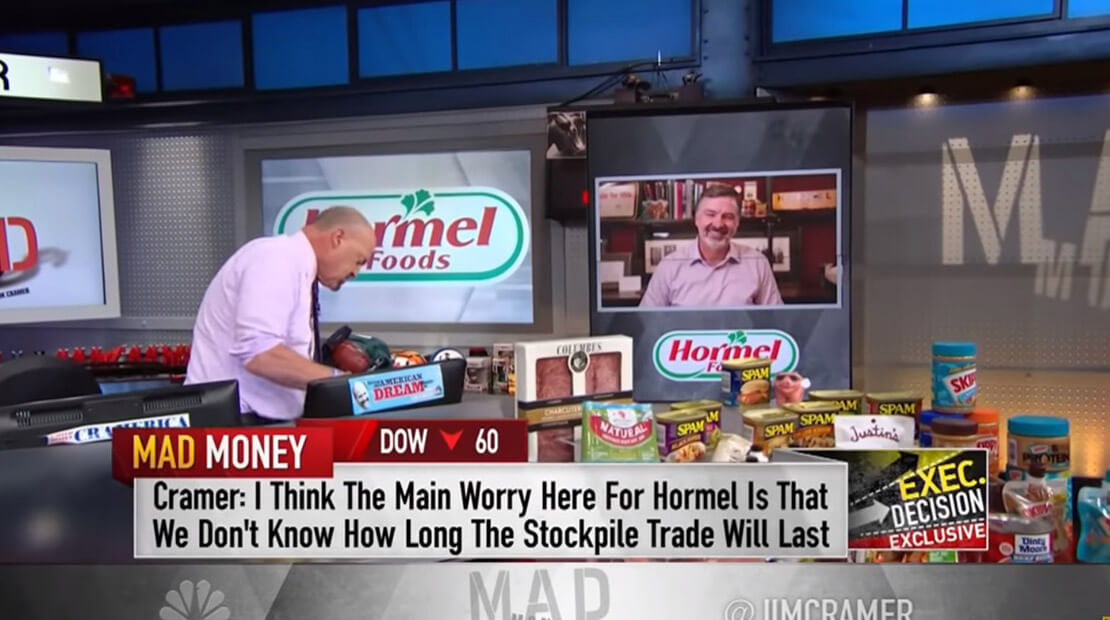Performance
Balance was Key to Hormel’s Record Quarter, Despite Foodservice Woes, CEO Says

CNBC
“We just had a record quarter” that was “so broad based,” he said in a “Mad Money” interview.
Hormel, the producer of Spam, Skippy, Applegate and other products on grocery shelves, saw revenue grow 4% to $2.38 billion, ahead of Factset’s $2.36 billion estimates, in the quarter ended July 26. But the company’s future remains uncertain in the face of the ongoing pandemic, particularly in foodservice.
While the company saw a rebound in the foodservice business during the three-month period, U.S. sales were down 19%. The industry has faced a world of pain as cafeterias, restaurants and other establishments struggle to do business at empty workplaces and with gathering restrictions.
“It’s been dramatically impacted during the pandemic, but we’re still very optimistic about that business as foodservice continues to reimagine itself overtime and continues its recovery,” Snee said.
Elsewhere, Hormel reported U.S. retail net sales were up 19% for the quarter. The company credited its acquisition of Sadler’s Smokehouse for helping to offset the steep decline in foodservices. Growth was also driven by Applegate, Hormel Black Label and Columbus.
The company took some profit hits for the decline in foodservice and costs associated with the pandemic, but Snee credits Hormel’s balance for pushing through the difficult environment. Sales have been up at grocers as the public continues to eat more at home amid the pandemic.
Hormel recorded $203 million in profits, or 37 cents of earnings per share, up 2% from a year ago.
“The key to all of this is the balance that we’ve really built in our portfolio over time,” Snee said. “This isn’t just a one trick pony where we’re dependent on people to go to center of the store … but, more importantly, [it] is this intentional balance that we’ve built across brands, across businesses and across channels.”